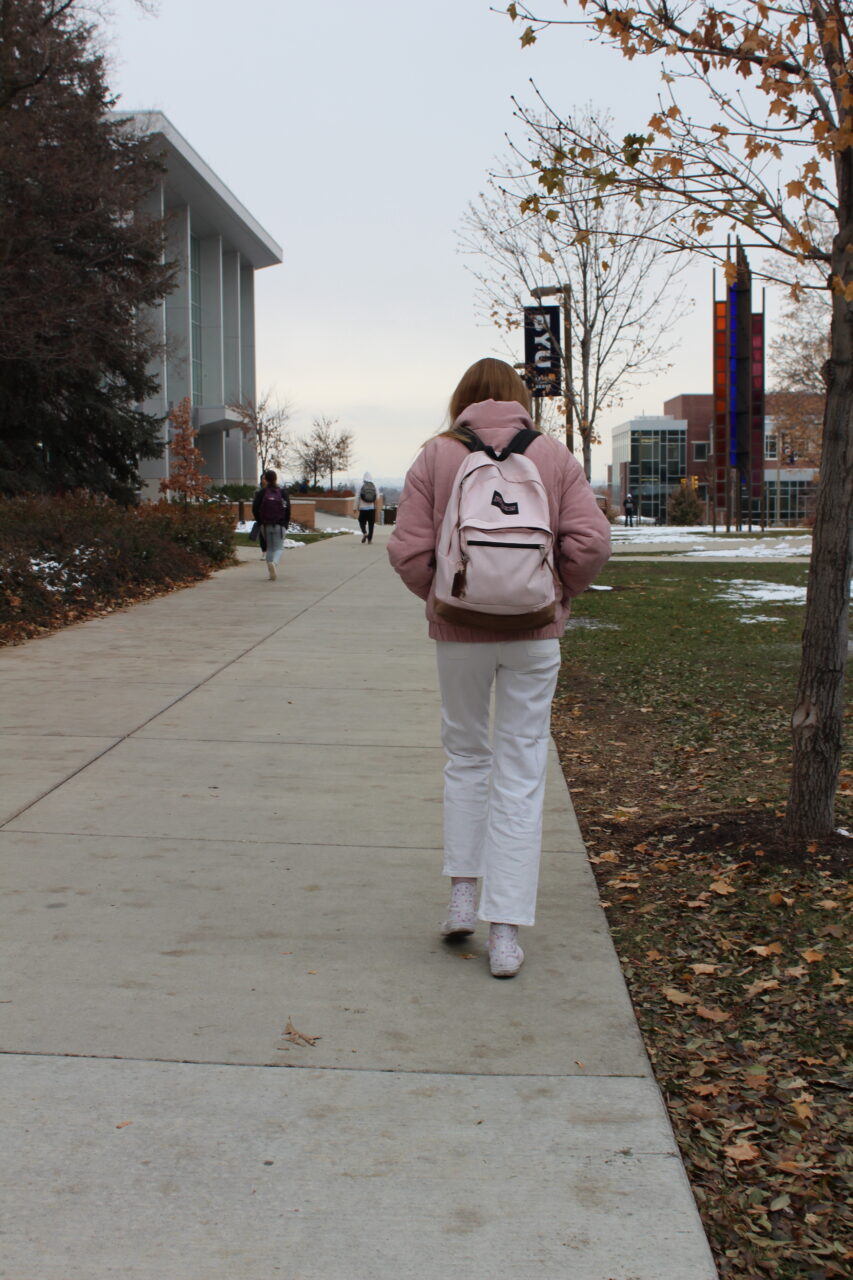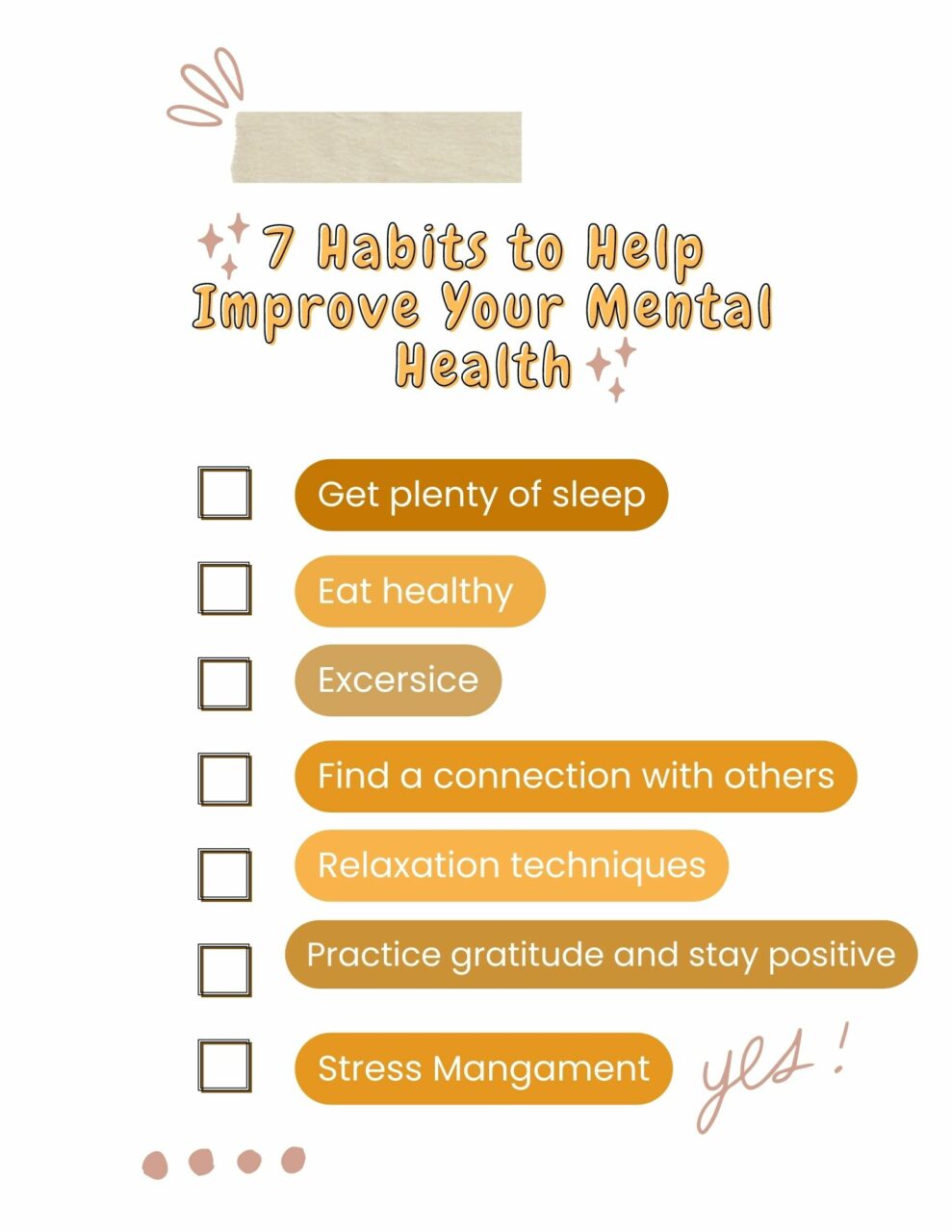According to several BYU students and professors, good habits such as eating healthy, getting enough sleep and exercising every day can make an impact on daily life to stay happy and mentally healthy.

BYU student Susan Arriola said having good habits has helped her be more stable and it has impacted her mental health.
“I practice good habits such as cutting back time on social media, relaxation techniques and practicing gratitude and staying positive. Practicing these habits helps me stay and live mentally well,” she said.
BYU student Julia Hanson said having good habits is very important because it can help to stay on a healthy path when times get tough. For Hanson, getting enough sleep is one of the most important habits to stay active.
“When I don’t get enough sleep, it makes it really hard for me to take in a lot of the hard things that happen every day and the thought problems that I have to think about being in an engineering major,” Hanson said.
Hanson said her family has a history of mental health issues and she has seen how practicing good habits in their daily lives has helped them improve their mental health.
“It is important to set a time for yourself that you have to get out of bed and leave the house. It is hard to feel like you have some purpose … if you are just at home all day,” Hanson said.
According to Hanson, mental health can depend on various things, but reaching out for help and talking to others can be very helpful. Hanson said what helped her recover from traumatic experiences was opening up to people and doing her best to love them.
“Heavenly Father and Jesus Christ have entered into my life and helped me reach out and love people even though at times I haven’t felt loved, and that to me has healed me more than anything else could,” Hanson said.
Hanson said having good habits is the first step to having good mental health, but if it still does not feel enough it is important to seek professional help.
Mary Gale, a BYU student majoring in elementary education, said she often struggles with stress. Gale said she makes sure to take the time to destress by meditating and exercising, especially during the winter.
“Things can get overwhelming and too stressful if you don’t have those good habits. Having good habits can ground you and center you so that you have more energy to focus on the good things,” Gale said.
Gale said at the beginning of the semester she did not have good habits and things felt out of place.
“I think it can be challenging to get into the rhythm but once you have a routine, it can be very hard to break that. Developing habits can be a hard thing but not an impossible thing to do,” Gale said.

Gale also thinks time management can help with mental health.
Abby White Marsh, another student at BYU, said that actions can have a great influence on one’s thoughts. She said, “the more you do something, the more your mind changes.”
Sarah Bellini, nutrition, dietetics and food science professor, said healthy eating and good nutrition also contribute to good mental health.
“Good habits in a healthy diet are including lots of fruits and vegetables and decreasing sugar in any food. Eating a balanced diet can definitely help with mental health,” Bellini said.

Philip D. Rash, psychologist and clinical professor at BYU, said that there are four pillars of mental health that are involved with good habits.
According to Rash, getting adequate sleep according to people’s age, a balanced diet and regular exercising, even just 20-30 minutes a day of walking, are beneficial.
According to Rash, having good coping skills and good strategies to manage stress can develop a good mechanism for our daily stressful routine.
“Thoughts, feelings, how we interact with others and how we handle hard things can all be affected by the state of our mental health. If we don’t take care of our mental health, we can feel out of control,” Rash said.
According to Rash, BYU’s Counseling and Psychological Services offers free services, individual counseling, group counseling and stress management to the university community.




